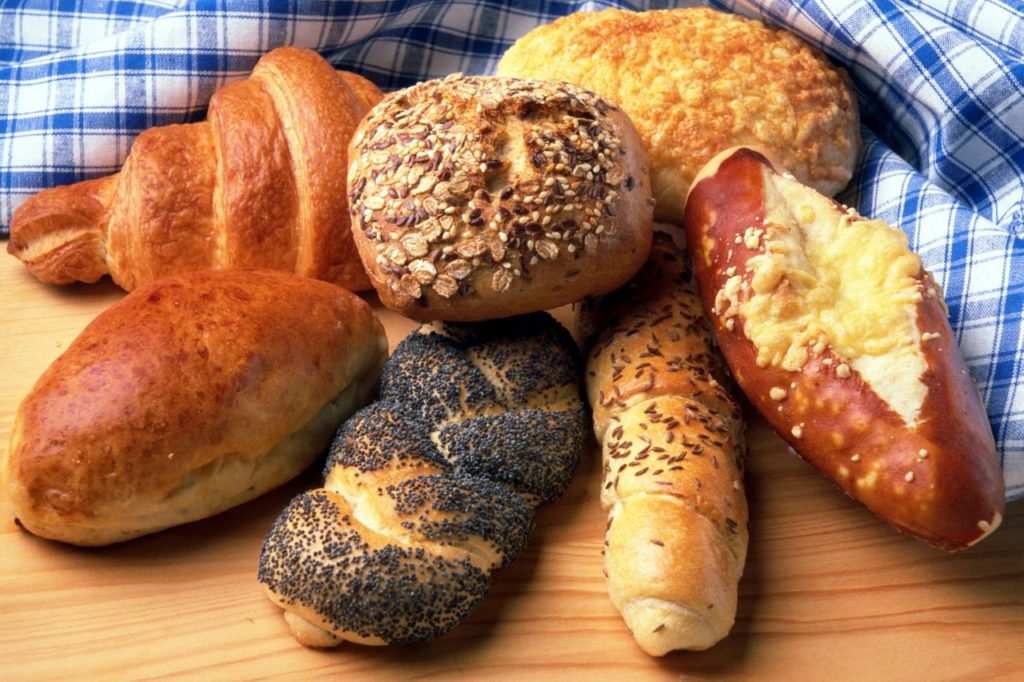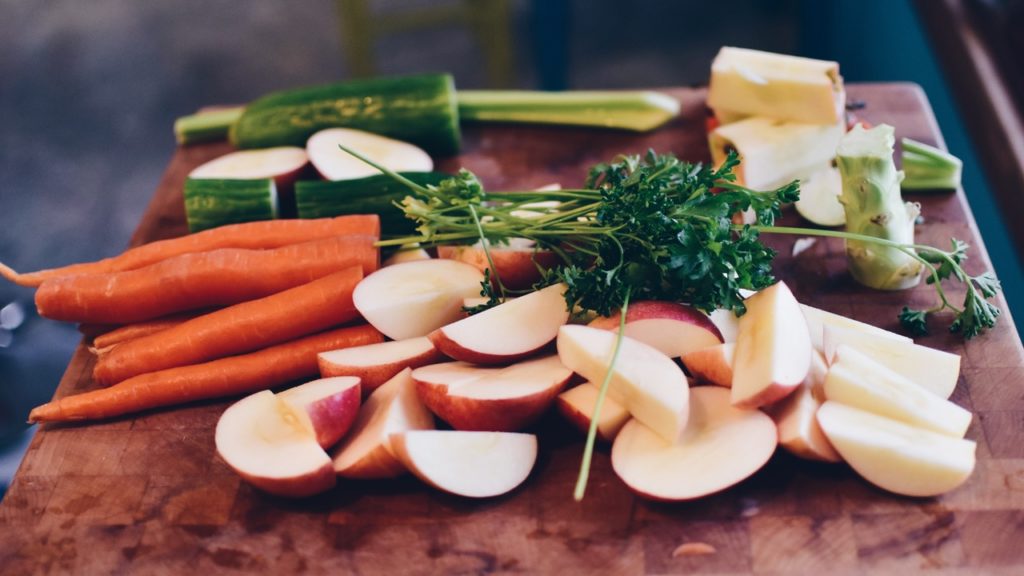This article was kindly contributed by Nutritional Therapist Ciara Corcoran of The Nutri Mum. Ciara received her Diploma in Nutritional Therapy from The College of Naturopathic Medicine and she specializes in childrenâs health.
What is it?
IBS is a functional bowel disorder. It is a title given to a collection of symptoms including abdominal pain, constipation, diarrhoea, bloating, and wind.
Although the symptoms are clear to those suffering from it, IBS can be difficult to diagnose. Even when there is a great deal of pain, discomfort, and other reoccurring symptoms present, diagnostic tests may still appear normal.
Functionally, IBS causes muscular contractions of the digestive tract to become irregular. This interferes with the normal movement of food and waste and leads to the accumulation of mucus and toxins in the intestine. This accumulation may obstruct part of the digestive tract and in turn causes gas and stools to be trapped leading to bloating, distention, and constipation.
 Why do we get it?
The exact cause of IBS is still unknown, however, there are often a variety of factors which may contribute. Food sensitivities and intolerances seem to play a huge role, and most sufferers report their worst symptoms after consuming certain foods.
In order to prevent IBS we need to recognise what triggers the flare ups. As everybody is different it is a good idea to keep a food diary for a period of 3-4 weeks and monitor what situations and foods elicit certain reactions.
The most common foods which would trigger IBS symptoms are gluten, dairy, refined sugars, fatty foods, coffee and tea. Rather than supressing the problem with antacids or the like, it is important to listen to your body and understand what affects you individually. If you are able to establish which foods are a trigger, you can eliminate them from your diet and note the improvements. This will help you to get to the root cause and work from there.
Stress is also a big trigger for most people. Stress causes our digestive systems to slow down leading to problems with stomach acid production and undigested foods accumulating in the gut causing irritation.
Why do we get it?
The exact cause of IBS is still unknown, however, there are often a variety of factors which may contribute. Food sensitivities and intolerances seem to play a huge role, and most sufferers report their worst symptoms after consuming certain foods.
In order to prevent IBS we need to recognise what triggers the flare ups. As everybody is different it is a good idea to keep a food diary for a period of 3-4 weeks and monitor what situations and foods elicit certain reactions.
The most common foods which would trigger IBS symptoms are gluten, dairy, refined sugars, fatty foods, coffee and tea. Rather than supressing the problem with antacids or the like, it is important to listen to your body and understand what affects you individually. If you are able to establish which foods are a trigger, you can eliminate them from your diet and note the improvements. This will help you to get to the root cause and work from there.
Stress is also a big trigger for most people. Stress causes our digestive systems to slow down leading to problems with stomach acid production and undigested foods accumulating in the gut causing irritation.
 How can we prevent it?
As a naturopathic nutritionist, I focus my advice at addressing the root cause and implementing symptom prevention through proper nutrition. Prevention is always better than cure. Here are a few tips:
How can we prevent it?
As a naturopathic nutritionist, I focus my advice at addressing the root cause and implementing symptom prevention through proper nutrition. Prevention is always better than cure. Here are a few tips:
 _________________________________________________________________________________
Train at CNM for an exciting new career in Naturopathic Nutrition, Herbal Medicine, Acupuncture and Homeopathy. Join CNM at their next open evening. Reserve your free place at www.naturopathy.ie
_________________________________________________________________________________
_________________________________________________________________________________
Train at CNM for an exciting new career in Naturopathic Nutrition, Herbal Medicine, Acupuncture and Homeopathy. Join CNM at their next open evening. Reserve your free place at www.naturopathy.ie
_________________________________________________________________________________
 Why do we get it?
The exact cause of IBS is still unknown, however, there are often a variety of factors which may contribute. Food sensitivities and intolerances seem to play a huge role, and most sufferers report their worst symptoms after consuming certain foods.
In order to prevent IBS we need to recognise what triggers the flare ups. As everybody is different it is a good idea to keep a food diary for a period of 3-4 weeks and monitor what situations and foods elicit certain reactions.
The most common foods which would trigger IBS symptoms are gluten, dairy, refined sugars, fatty foods, coffee and tea. Rather than supressing the problem with antacids or the like, it is important to listen to your body and understand what affects you individually. If you are able to establish which foods are a trigger, you can eliminate them from your diet and note the improvements. This will help you to get to the root cause and work from there.
Stress is also a big trigger for most people. Stress causes our digestive systems to slow down leading to problems with stomach acid production and undigested foods accumulating in the gut causing irritation.
Why do we get it?
The exact cause of IBS is still unknown, however, there are often a variety of factors which may contribute. Food sensitivities and intolerances seem to play a huge role, and most sufferers report their worst symptoms after consuming certain foods.
In order to prevent IBS we need to recognise what triggers the flare ups. As everybody is different it is a good idea to keep a food diary for a period of 3-4 weeks and monitor what situations and foods elicit certain reactions.
The most common foods which would trigger IBS symptoms are gluten, dairy, refined sugars, fatty foods, coffee and tea. Rather than supressing the problem with antacids or the like, it is important to listen to your body and understand what affects you individually. If you are able to establish which foods are a trigger, you can eliminate them from your diet and note the improvements. This will help you to get to the root cause and work from there.
Stress is also a big trigger for most people. Stress causes our digestive systems to slow down leading to problems with stomach acid production and undigested foods accumulating in the gut causing irritation.
 How can we prevent it?
As a naturopathic nutritionist, I focus my advice at addressing the root cause and implementing symptom prevention through proper nutrition. Prevention is always better than cure. Here are a few tips:
How can we prevent it?
As a naturopathic nutritionist, I focus my advice at addressing the root cause and implementing symptom prevention through proper nutrition. Prevention is always better than cure. Here are a few tips:
- For constipation, include dietary fibre found in fruits (careful with citrus fruits) and vegetables. Also introducing psyllium seed husks into your diet would be beneficial. These are available at The Health Store and come in convenient tablet form.
- Soothing teas such as peppermint, fennel, camomile and ginger can be very calming and aid with digestion.
- Take a good pro-biotic. Bear in mind, this works best when an improvement has been made in the diet first.
- Add grated, fresh ginger to your meals. (An easy addition to stir-fryâs, steamed vegetables, soups and stews).
- Try wheat alternatives such as quinoa, millet and brown rice to cut down on gluten.
- Use dairy alternatives such as unsweetened almond milk and coconut milk instead of traditional options.
- Check with your Nutritional Therapist to organise a prevention plan specifically for you!
 _________________________________________________________________________________
Train at CNM for an exciting new career in Naturopathic Nutrition, Herbal Medicine, Acupuncture and Homeopathy. Join CNM at their next open evening. Reserve your free place at www.naturopathy.ie
_________________________________________________________________________________
_________________________________________________________________________________
Train at CNM for an exciting new career in Naturopathic Nutrition, Herbal Medicine, Acupuncture and Homeopathy. Join CNM at their next open evening. Reserve your free place at www.naturopathy.ie
_________________________________________________________________________________

